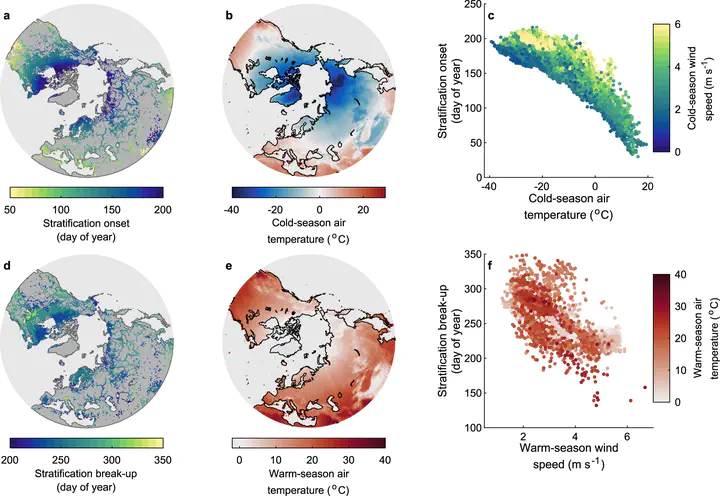 Spatial patterns in a the day of year of stratification onset and stratification break-up.
Spatial patterns in a the day of year of stratification onset and stratification break-up.
Abstract
One of the most important physical characteristics driving lifecycle events in lakes is stratification. Already subtle variations in the timing of stratification onset and break-up (phenology) are known to have major ecological effects, mainly by determining the availability of light, nutrients, carbon and oxygen to organisms. Despite its ecological importance, historic and future global changes in stratification phenology are unknown. Here, we used a lake-climate model ensemble and long-term observational data, to investigate changes in lake stratification phenology across the Northern Hemisphere from 1901 to 2099. Under the high-greenhouse-gas-emission scenario, stratification will begin 22.0 ± 7.0 days earlier and end 11.3 ± 4.7 days later by the end of this century. It is very likely that this 33.3 ± 11.7 day prolongation in stratification will accelerate lake deoxygenation with subsequent effects on nutrient mineralization and phosphorus release from lake sediments. Further misalignment of lifecycle events, with possible irreversible changes for lake ecosystems, is also likely. Stratification has a considerable influence on lake ecology, but there is little understanding of past or future changes in its seasonality. Here, the authors use modelling and empirical data to determine that between 1901–2099, climate change causes stratification to start earlier and end later.